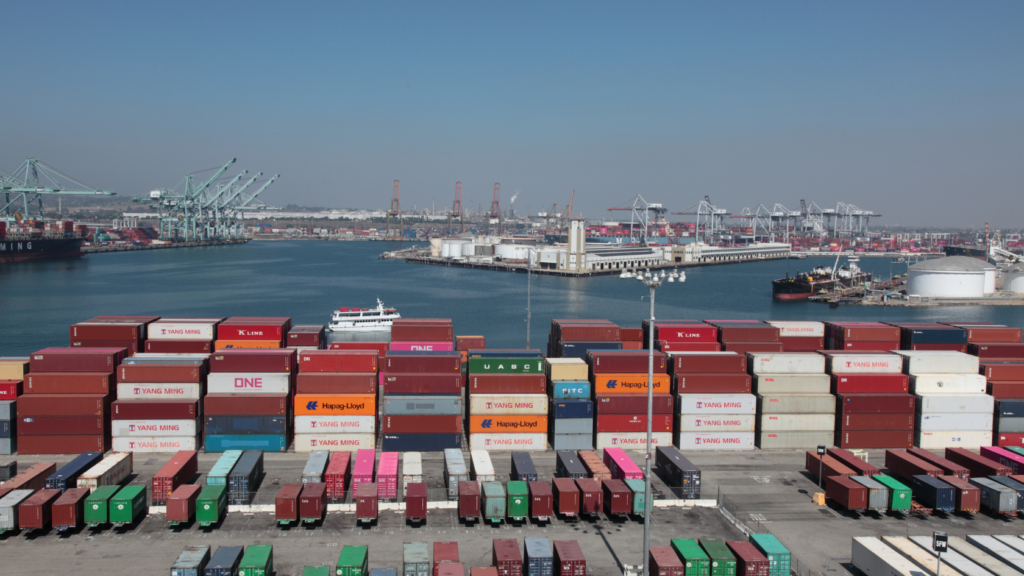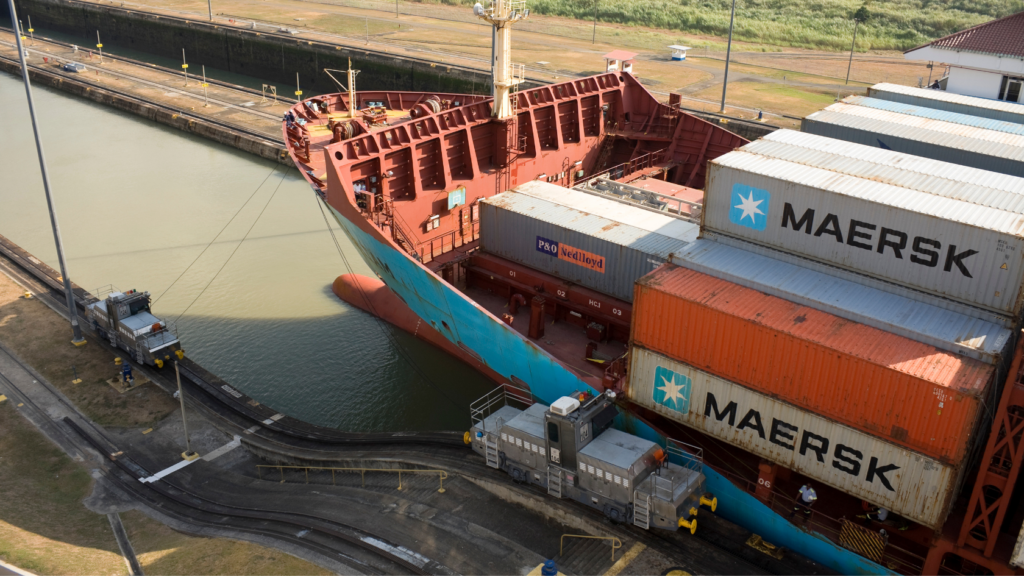Bed Bath & Beyond Bankruptcy, Q1 Maersk’s Best, Hurdle Overcame, and Change Needed.
Your weekly All-Ways round-up of supply chain news.
Beyond Brazen?
Shortly after Bed Bath & Beyond filed for bankruptcy, the retailer is seeking tens of millions of dollars from container lines. Coincidence?
The retailer claims that during the supply chain crisis, the carriers knowingly chose to abandon service commitments to gain economic benefits when the market was in turmoil.
They filed a complaint with U.S. Maritime Regulators claiming that Orient Overseas Container Line had engaged in “brazen price gouging and profiteering” costing the retailer $31.7 million in damages and losses incurred.
Similarly, earlier last month, Bed Bath & Beyond sought payment from Yang Ming Marine Transport. The carrier filed a lawsuit in federal court in Manhattan to block the retailer from seeking $7.8 million for the losses incurred due to breach of contract. The carrier denies all allegations.
As the latest case of importers launching complaints against container lines, Bed Bath & Beyond’s filing to the FMC seems to be one of the more intense complaints. Because the company is going bankrupt, they are not held back by the prospect of alienating carriers.
The OOCL claims that they have a great track record of complying with regulations and putting a lot of effort into customer relationships. “We will continue to work with our customers and all relevant authorities to resolve any disputes in a professional, efficient, and amicable manner,” Kalia Wong, a spokeswoman for the carrier, stated.
Bed Bath & Beyond, on the other hand, has emails to back up its claims, including an email correspondence with an OOCL employee notifying a Bed Bath & Beyond employee that they’d need to pay thousands of dollars in surcharges. Stating “It is not our intention to gouge, but to position [Bed Bath & Beyond] to secure space on the vessel listed below”. The retailer is also claiming that OOCL charged them for freight delays outside of their control.
All the complaints against ocean carriers caused Congress to pass regulations to help importers and exporters file complaints more efficiently with the FMC which caused importers to file hundreds of complaints. $950,000 in fees have been waived or refunded thus far.
Q1 2023 will be Maersk’s Best
As demands in key markets are expected to slow down and container shipping rates continue to decline from the extreme high of last year, Maersk announced that its best quarterly earnings of 2023 will be Q1.
The container shipping market is going through an extreme normalization, as indicated by Maersk’s profit projection for this year. The company expects its full-year EBITDA to be between $8 billion and $11 billion, a sharp decline from $36.8 billion last year. This year’s EBIT of $2 billion to $5 billion is a long way from the $30.8 billion in 2022.
“Volume and rate development in the second half of the year remains uncertain,” Maersk CEO Vincent Clerc told analysts. “We continue to believe in a recovery of volume, but given the industry order book, the supply side risks remain.”
Despite the financial year-over-year decline, the ocean carrier has still somehow managed to be highly profitable. Its revenue declined by a bit more than 25%, down $5.1 billion at $14.2 billion in comparison to Q1 of 2022. Average loaded freight rates fell by 37% year over year to $2,871 per FEU, while Maersk’s volume declined by 9.4% in Q1 to 2.7 million FEU. This all translated to a 56% drop in EBITDA of $9.1 billion, and a decline of 67% year over year in EBIT amounting to $2.3 billion.
Downhill From Here?
With a profit of $2.3 billion in the first quarter of 2023, Maersk’s CFO, Patrick Jany believes it will be its best with a 25% sequential decline in average rate levels, spot, and contract in Q1 and a 37% drop in rates in comparison to the same time last year.
“Clearly, we have gathered that the first quarter will be the strongest for ocean and we will see a regression of profitability as the new contracts come in,” Jany said. “We expect contracts will always be a little higher than the actual spot rate ... the progressive erosion of contract rates in ocean towards spot levels will be the main element determining profitability in the next quarters.”
Maersk is estimating that about 70% of its total volume will be moved under contract this year with 75% of all its contracts for 2023 already signed. Containers under multi-year contracts stayed the same year over year at 1.8 million FEU for Q1.
Destocking Won’t Last
In the first quarter, Maerks saw lower volume and rates across the board compared to the beginning of last year.
“The destocking that is currently taking place is especially affecting North America, more so than in Europe, and that you see in the terminal results of our two largest facilities in Los Angeles and in New York where there are fewer volumes coming through the pipeline,” Clerc noted.
Although the destocking will come to an end eventually, retailers are not running to rebuild inventory. As noted by the US Census Bureau, the ratio of sales to inventory has remained at 1.23 In January and February. Usually, retailers prefer to have a ratio of two to one so that inventory can meet the demand without having too much idle overstock.
“Whether it will be seven months, eight months, 10 months, that's the part that is really hard for us to predict,” he said. “But [destocking] is going to come to an end ... consumption now is well ahead of what is being moved.”
Maersk’s Logistics & Services division reported a 21% increase to $3.5 billion in the quarter in revenue. This can be attributed to the 2022 acquisitions of Pilot, LF Logistics and Senator International and that of Martin Bencher Group and Grindrod Logistics in early 2023.
The Terminals division, on the other hand, reported a 23% drop in revenue to $876 million and a 9.5% drop in volume to 2.8 million FEU. Per move, revenue fell 14% to $309.

Progress Made
Good news!
Just a week short of the opening of the negotiations last May 10, progress has been made to the deal between the International Longshore and Warehouse Union (ILWU) and the Pacific Maritime Association (PMA).
After reaching an agreement on manning needs at the three automated terminals a few weeks back, an agreement has finally been reached between Local 13, ILWU, and PMA on manning requirements for non-automated terminals at the ports of Los Angeles-Long Beach.
This could accelerate the closing coastwide contract deal.
The next two major hurdles that need to be solved are regarding wages and pension benefits.
Many believe that a tentative agreement will potentially be reached in the next few weeks. Once a deal is agreed upon, any remaining issues at individual ILWU locals on the West Coast will be wrapped up.
Next, the entire coastwide agreement will be distributed to the ILWU membership. After discussions between ILWU local officers and their rank and file, they’ll vote on the coastwide deal. This process can take several weeks. Assuming a deal is reached in the near future, a ratification vote may be possible at some point in mid-summer.
 Stakeholders Urge for Change
Stakeholders Urge for Change
A letter has been sent to the House Transportation and Infrastructure Committee leadership by more than 70 trade associations requesting clarification in regards to rail storage fees charged.
The letter suggested that charges should be billed directly through the ocean carrier. Additionally, the rail storage fees should be subject to the same demurrage and detention invoicing requirements of the Ocean Shipping Reform Act of 2022 (OSRA22)
“This would more clearly establish that rail storage charges assessed as part of international ocean transportation are under the operational authority of the FMC and that any unreasonable charges would be governed by the requirements of OSRA22,” the letter stated.
Neither OSRA22 nor the Ocean Shipping Reform Implementation Act (H.R. 1836) includes rail storage, plaguing shippers unfairly with unregulated charges. The letter mentions that “Rail storage, a form of demurrage, is charged by railroads as part of international ocean transportation at the nation’s interior rail terminals. In recent years, these demurrage charges have resulted in costs to U.S. businesses in the hundreds of millions of dollars.”
Here’s the problem. In certain situations where the ocean carrier signs a contract to deliver the container inland, rail services are purchased to meet the delivery timeline. But when the containers are delayed at the railyard, rail storage charges unfairly accrue, often because of delays caused by railroad terminal inefficiencies. In order to release the container, fees must be paid by the importers directly to the railroad.
There is a gap in authority between the Surface Transportation Board and the FMC to regulate these charges. As the letter states, “the lack of clear statutory authority for the FMC to address unreasonable rail storage charges assessed under ocean carriers through bills of lading is a gap that must be clarified.”
The trade associations end by asking Congress to “clarify that rail storage charges assessed under ocean bills of lading for through transportation should be billed through the contracting ocean carrier and subject to the OSRA22 demurrage and detention invoicing requirements. This would more clearly establish that rail storage charges assessed as part of international ocean transportation are under the operational authority of the FMC and that any unreasonable charges would be governed by the requirements of OSRA22.”



